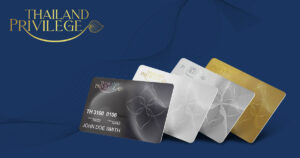Registering a marriage in Thailand involves a series of legal steps, but the process can be straightforward with proper preparation. Whether you’re a Thai citizen marrying a foreigner, two foreigners getting married in Thailand, or two Thai nationals tying the knot, the legal marriage registration is handled by the local district office, or Amphur (also known as Khet in Bangkok). Here’s a comprehensive step-by-step guide to help you navigate the marriage registration process in Thailand.
Step 1: Understand the Legal Requirements
Before beginning the process, it’s essential to understand the eligibility criteria:
-
Both parties must be at least 17 years old.
-
Both parties must be legally single and free to marry.
-
Consent is required if either party is under 20 years old (parental or guardian consent).
-
Marriages must be entered into willingly and without coercion.
In Thailand, a wedding ceremony—religious or traditional—is not legally binding. For a marriage to be recognized under Thai law, it must be registered at a district office.
Step 2: Prepare Necessary Documents
The required documents vary depending on your nationality:
For Thai Nationals:
-
Thai National ID card
-
House Registration Document (Tabien Baan)
-
Divorce certificate or death certificate of a previous spouse (if applicable)
-
Parental consent if under 20 years old
For Foreigners:
-
Valid passport with visa stamp
-
Affirmation of Freedom to Marry, issued by the embassy of the foreign national in Thailand
-
Translation of the Affirmation into Thai by a certified translator
-
Legalization of both the affirmation and the translation at the Thai Ministry of Foreign Affairs
Step 3: Get the Affirmation of Freedom to Marry
This document states that you are legally free to marry and must be obtained from your embassy in Bangkok. Each embassy has its own procedures, which may include:
-
Making an appointment
-
Providing proof of single status (e.g., affidavit, divorce certificate)
-
Paying a fee
Once issued, the affirmation must be translated into Thai.
Step 4: Legalize the Documents at the Ministry of Foreign Affairs
After obtaining and translating the affirmation:
-
Visit the Legalization Division of the Ministry of Foreign Affairs (located at the Consular Department in Bangkok).
-
Submit:
-
The original affirmation
-
The Thai translation
-
Copies of your passport
-
-
Pay the required fees.
-
Processing may take 1-3 business days.
This step ensures that your documents are officially recognized by the Thai government.
Step 5: Visit the Local District Office (Amphur)
Once all documents are prepared and legalized, you and your partner can proceed to a district office to register your marriage. It’s recommended to visit larger district offices, especially those familiar with international marriages (such as Bang Rak District Office in Bangkok).
At the office:
-
Submit all documents.
-
Complete a marriage registration application.
-
Sign in the presence of an officer.
-
Witnesses may be required (some offices provide them).
-
If one or both parties do not speak Thai, a certified translator may be needed.
If all documents are in order, the marriage will be registered on the same day.
Step 6: Receive the Marriage Certificate
After registration, you will receive two documents:
-
Thai Marriage Certificate in Thai language – the official document proving your legal marriage under Thai law.
-
Marriage Registration Document (Kor Ror 2) – a summary of the registration details.
These documents are legal proof of marriage in Thailand. If you plan to use them overseas (for visa applications, name changes, etc.), you’ll need to have them translated into your home language and legalized.
Step 7: Legalize the Thai Marriage Certificate for Use Abroad
To use your Thai marriage certificate in another country:
-
Translate the Thai marriage certificate into your native language (if needed).
-
Have the translation certified by the Ministry of Foreign Affairs.
-
Depending on your country, submit it to your home country’s embassy for further legalization or apostille.
Optional Step: Host a Religious or Traditional Ceremony
Although not required for legal recognition, many couples choose to hold a religious or cultural ceremony before or after registering the marriage. These can include:
-
Buddhist ceremonies with monks
-
Christian church weddings
-
Traditional Thai ceremonies, including water pouring and dowry presentations
These events are separate from the legal process and can be arranged through wedding planners or venues.
Tips for a Smooth Registration
-
Plan ahead: Document processing, embassy appointments, and translations can take several days.
-
Use a local service or legal assistant: Many agencies in Thailand specialize in helping foreigners with marriage registration. They can guide you through the paperwork and help with translations and appointments.
-
Choose the right district office: Not all offices are equally experienced with foreigner registrations. Popular choices include Bang Rak (Bangkok) and Muang District Office (Chiang Mai).
-
Verify embassy requirements: Embassies may have different procedures and operating hours. Visit their official website or call in advance.
-
Dress appropriately: While there is no strict dress code, respectful attire is advised for visiting government offices.
Conclusion
Registering your marriage in Thailand requires careful coordination, particularly for international couples. By following the correct steps—starting from document preparation to the final registration—you can ensure your marriage is legally recognized. Whether you’re planning a simple ceremony or an elaborate celebration, remember that only the district office registration holds legal weight. With preparation and attention to detail, getting legally married in Thailand can be a smooth and meaningful experience.










